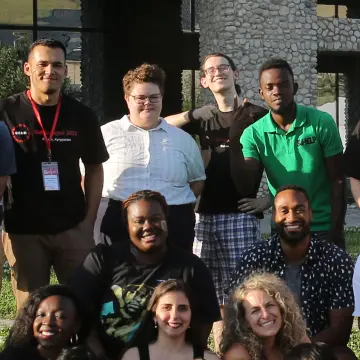
Munich, Germany
European Studies Intensive: Vienna-Prague-Munich
When:
20 July - 14 August 2026
Credits:
6 EC
Read more
Political Science
When:
22 July - 09 August 2019
School:
Institution:
Maastricht University
City:
Country:
Language:
English
Credits:
6 EC
Fee:
1000 EUR

The European Union started in 1951 as an attempt to prevent a new World-war in Europe. No other region has displayed similar willingness to give up important parts of national sovereignty in pursuit of a stronger global competitive positioning. The European Union keeps pressuring the integration-process at a pace which is too fast for some and too slow for others. This integration has a direct impact on the daily lives of all citizens in Europe.
The course discusses the key economic policy areas of the European Union and offers an analysis of the different approaches to regional economic integration throughout the history of the European Union. The course analyses the economic bases for the rise of the European Union from its origins in the post-World war II recovery to its historic enlargements in 2004 and 2007. The accession of the new Central and Eastern European Member-States (most recently Croatia in 2013) and Brexit, pose new challenges for the EU. Since Europe accounts for one-quarter of the global economy, half of the global trade and a substantial part of worlds capital markets, this course also looks at the impact of the European Union on other trading blocks like NAFTA. Competitiveness is the key word for globalisation and the course will focus on different forms of market–integration used inside the EU and will discuss consequences for both competition policy and industrial policy.
The theory of the economic integration process will be applied to a business setting, with a series of business cases illustrating how a variety of firms are responding strategically to the establishment of the Economic and Monetary Union, Brexit and the accession of new Member-States. Students are given advice and guidance on using case studies and how to evaluate the strategies choices made by firms. Special attention will be given to the present problems of the Euro crisis and corresponding consequences for national tax policies within the EU.
This course consists of 32 class hours divided over 3 weeks. Students earn 6 ECTS credits when they obtain a passing grade. The course will include a field trip.
This course is the (non-mandatory) companion course to STU2001 Western European Study trip in the first half of the Summer programme, which forms an excellent preparation to this course.
M.J.C. Heckman
Understanding of basic micro- and macro economic principles. Preferably understanding of international economic relations.
A minimum of 8 students is required for the class to take place.
By the end of the course students will demonstrate the ability to:
Learning objectives
▪ Understand the economic and political logic behind the EU integration
▪ Review the EU’s legal system and main legal principles guiding the economic integration, and describe the legislative processes
▪ Understand the economic framework of the decision-making inside the EU
▪ Understand the various forms of market- integration in-depth
▪ Understand the choice and benefits of the Economic and Monetary Union-concept
Skill development
▪ Address the current challenges facing the EU, including the accession of new Member-States
▪ Apply their knowledge and skills in the area of business strategy to the issues facing firms operating in the European Union
▪ Evaluate the consequences of European economic integration and global competition at a firm level.
Fee
1000 EUR, This 3-week course costs €1000,-.
When:
22 July - 09 August 2019
School:
Institution:
Maastricht University
Language:
English
Credits:
6 EC

Munich, Germany
When:
20 July - 14 August 2026
Credits:
6 EC
Read more

Budapest, Hungary
When:
06 July - 10 July 2026
Credits:
2 EC
Read more

Firenze, Italy
When:
20 April - 24 April 2026
Credits:
1 EC
Read more